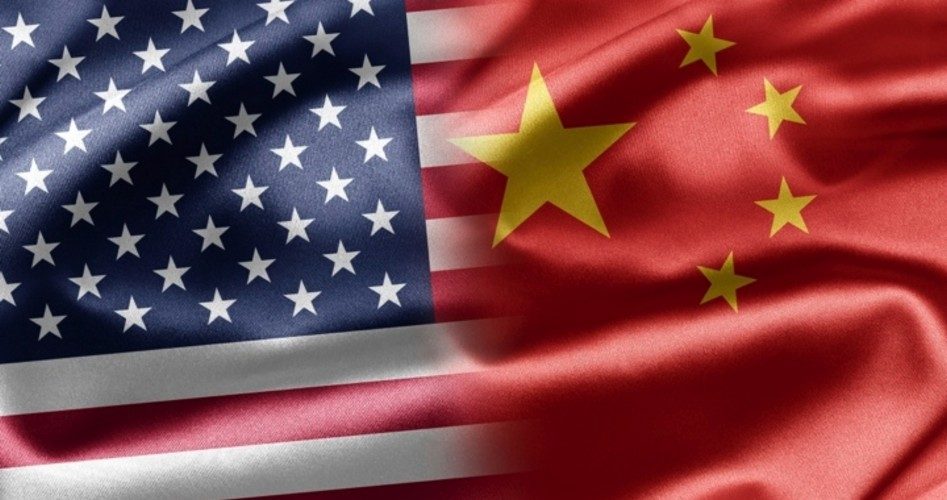
The Trans-Pacific Partnership (TPP) is accelerating toward “a successful conclusion as early as 2015,” according to a report out of TPP member Malaysia.
Currently, there are 12 countries negotiating in secret to create this regional trade agreement that some have called “NAFTA on steroids.” The number of participants could rise to 14 should South Korea and China be welcomed on board by the United States trade representatives.
President Obama has signaled that he would entertain the idea of the Chinese communist government’s partnership in the bloc.
Now, word from Tawainese media reveals mainland China’s increasing interest in getting in on the TPP’s destruction of American economic prosperity.
After citing South Korea’s interest in joining the trade pact negotiations, the China Post reports:
Now, China is also indicating interest. Foreign Minister Wang Yi, while outlining diplomatic priorities for 2014, said that economic diplomacy would be a major focus of Chinese diplomacy in the new year and that “China will face the member states of the Trans-Pacific Partnership talks with an open attitude, as well as other regional or cross-region FTA initiatives.”
President Obama’s fascination with intertwining the economic welfare of the United States with China is perhaps one reason a recent commentator called the TPP “another disaster from a proven liar.”
Perhaps it is this sinister ulterior motive that has prompted the president to steadfastly protect the secrecy that has shrouded the drafting of the TPP treaty from the beginning.
In November 2013, portions of the TPP draft agreement published by WikiLeaks contained sketches of President Obama’s plans to surrender American sovereignty to international tribunals. This is just one of many frightening provisions of the TPP that are being negotiated in secret by American and international trade representatives.
U.S. copyright laws, Internet freedom, and web-based publishing would all be obliterated by the TPP, and, although it hasn’t been widely reported, the TPP would give the global government sweeping surveillance powers, as well.
Although the American people (and the people of all nations involved in the pact) are prevented from seeing or commenting on the treaty being ostensibly negotiated on their behalf, multinational corporations have seats at the trading table.
While the TPP grants corporate giants such as Walmart and Monsanto the power to bypass Congress and the courts, the elected representatives of the American people are kept from even seeing the draft version of the agreement.
In 2011, Zach Carter of the Huffington Post reported that Senator Ron Wyden (D-Ore.), the chairman of the Senate Finance Committee’s Subcommittee on International Trade, Customs and Global Competitiveness, was stonewalled by the office of the U.S.Trade Representative (USTR) when he attempted to see any of the draft documents related to the governance of the TPP.
“I would point out how insulting it is for them to argue that members of Congress are to personally go over to USTR to view the trade documents,” said Wyden spokeswoman Jennifer Hoelzer. “An advisor at Halliburton or the MPAA is given a password that allows him or her to go on the USTR website and view the TPP agreement anytime he or she wants.”
As with the multitude of similar trade pacts the United States has formed, the ultimate aim of the TPP is the creation of a regional super government, thus the stonewalling of federal lawmakers who dare seek to assert some sort of oversight.
In the case of the TPP, the zone would be called the Free Trade Area of the Asia Pacific (FTAAP). Members of the proposed “free trade” bloc include all the current TPP participants: Malaysia, Singapore, Japan, Vietnam, Brunei, Australia, New Zealand, Peru, Mexico, Chile, Canada, and the United States. The regional trading partnership is intended to establish “a comprehensive free trade agreement across the region.”
An article in the Georgetown Journal of International Law says that the TPP negotiations “are designed to culminate in a ‘gold standard’ free trade agreement (FTA).” The article continues:
The TPP negotiations are among the more recent of a large number of FTAs and Regional Trade Agreements (RTAs) that have been or are being negotiated between the member economies of the Asia-Pacific Economic Cooperation (APEC) forum. Since the APEC Leaders’ Bogor Declaration in November 1994, the member economies have been committed on some level to the objective of achieving an environment for “free and open” trade and investment in the Asia-Pacific region.
In globalist-speak, “free and open trade” translates as “economic and political integration.” Later in the Georgetown piece, former U.S. Trade Representative (USTR) Ron Kirk is quoted as calling for the TPP to be “more than a broad concept.”
Additional evidence of the “ambitious” goal of the TPP discussions is found in a press release issued by representatives of the member nations attending an APEC meeting in Honolulu in 2011:
We are delighted to have achieved this milestone in our common vision to establish a comprehensive, next-generation regional agreement that liberalizes trade and investment and addresses new and traditional trade issues and 21st-century challenges. We are confident that this agreement will be a model for ambition for other free trade agreements in the future.
In fact, the authors of the Georgetown review state that the ultimate goal of the TPP isn’t just the creation of an FTAAP. They insist that the TPP is a “trade agreement designed to achieve broad liberalization and a high degree of economic integration among the parties.” There’s that word “integration” again.
Integration is a word that is painful to the ears of constitutionalists and those unwilling to surrender U.S. sovereignty to a committee of globalists who are unelected by the American people and unaccountable to them. Integration is an internationalist tool for subordinating American law to the globalist bureaucracy at the United Nations.
Economic and political integration will push the once independent United States of America into yet another collectivist bloc that will facilitate the complete dissolution of our nation and our states into no more than impotent members of a one-world government.
In an article examining the devastating effects of the TPP, William Jasper of The New American identified the end game for these globalists and their secretly planned trade pacts. Wrote Jasper:
The architects and promoters of the TPP and FTAAP frequently point with admiration to the “integration” process of the European Union (EU) as the model they would like to see implemented for the Asia-Pacific rim nations. As with the Transatlantic Trade and Investment Partnership (TTIP), the Trans-Pacific Partnership has been designed to follow the EU example of relentless widening and deepening, constantly eroding national sovereignty, while building “transnational governance” that is not restrained by the checks and balances of national constitutions.
Equally significant is that 600 industry lobbyists and “advisors,” as well as unelected trade representatives, are at the table, while representatives from the public at large and businesses other than huge monopolies, are conspicuously absent.
Each of the “partners” to the pact, including foreign corporations, would be exempted from abiding by American laws governing trade disputes. Moreover, the sovereignty of the United States and the Constitution’s enumeration of powers would once again be sacrificed on the altar of global government by subordinating U.S. laws passed by duly elected representatives of the people to a code of regulations created by a team of transnational bureaucrats.
Americans who study the subject realize that the redrawing of national boundaries and domestic legal processes being carried out in secret by the globalists sitting around the TPP negotiating table is an attack on American laws, American courts, American freedom of expression, American sovereignty, and the American Constitution.
The situation is dire indeed. In a recent video presentation, William Jasper makes a compelling case for his claim that the TPP is “more dangerous than ObamaCare.”
Nonetheless, the TPP cannot have these bad effects on America unless Congress approves a final TPP agreement. However, if the American people can continue uniting in opposition to the TPP and convince Congress to tear down the wall of secrecy built by globalists and their corporate backers, ultimately enough lawmakers could be persuaded to reject any TPP agreement.
If not, then an approved TPP might finish the integration — economic and political — begun by NAFTA and it may be the last straw in the already weakened broom of American sovereignty.
Joe A. Wolverton, II, J.D. is a correspondent for The New American and travels frequently nationwide speaking on topics of nullification, the NDAA, and the surveillance state. He is the host of The New American Review radio show that is simulcast on YouTube every Monday. Follow him on Twitter @TNAJoeWolverton and he can be reached at [email protected]



